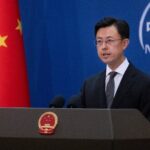In a landmark event, Israeli Prime Minister Benjamin Netanyahu extended his gratitude to U.S. President-elect Donald Trump for his critical assistance in securing the release of hostages. The move signifies a new chapter in the U.S.-Israel partnership and demonstrates the power of collaborative diplomacy. This article delves into the context, implications, and broader significance of this development.
Background of the Hostage Crisis
The recent hostage crisis, which saw dozens of individuals held captive, has been a harrowing ordeal for Israel. Hostage situations are not uncommon in the volatile Middle Eastern region, where political tensions and security threats are part of the landscape.
Timeline of the Crisis
- Initial Capture: Reports emerged of multiple individuals being taken hostage during an unexpected escalation in conflict.
- Israel’s Response: The Israeli government immediately mobilized intelligence, military, and diplomatic channels to address the situation.
- Global Attention: The crisis garnered widespread international attention, with many countries expressing concern and offering assistance.
The Hostages’ Ordeal
The individuals held captive faced inhumane conditions, limited access to basic necessities, and psychological distress. Families of the hostages endured weeks of uncertainty, their hopes pinned on the Israeli government’s efforts to bring their loved ones back safely.
Netanyahu-Trump Partnership in Action
Prime Minister Netanyahu’s acknowledgment of President-elect Donald Trump’s role highlights the effectiveness of coordinated international efforts. The two leaders demonstrated a shared commitment to addressing the crisis and ensuring the hostages’ safe return.
Trump’s Role in the Negotiations
- Diplomatic Influence: Trump utilized U.S. diplomatic channels to exert pressure on the entities involved in the hostage situation.
- Strategic Coordination: U.S. intelligence agencies worked closely with their Israeli counterparts to locate and negotiate the release of the captives.
- High-Level Communication: Regular discussions between Netanyahu and Trump ensured alignment in strategy and swift decision-making.
Netanyahu’s Leadership
Netanyahu’s unwavering focus on the safety of Israeli citizens was evident throughout the crisis. His ability to navigate complex political and diplomatic challenges while keeping the families informed earned widespread praise.
Key Challenges Faced During the Operation
Despite the eventual success, the journey to the hostages’ release was fraught with obstacles.
Security Risks
Negotiating with hostile entities posed significant security risks. There was always the danger of the captors retaliating or escalating the situation, endangering the lives of the hostages.
Diplomatic Complexities
The involvement of multiple stakeholders, including foreign governments and non-state actors, added layers of complexity to the negotiations. Balancing these interests while prioritizing the hostages’ safety required exceptional diplomatic acumen.
Public and Media Pressure
As the crisis unfolded, public sentiment and media scrutiny intensified. While this kept the issue in the spotlight, it also added pressure on the Israeli government to deliver swift results.
The Role of U.S.-Israel Relations
The successful resolution of this crisis underscores the depth of the U.S.-Israel relationship, a cornerstone of Middle Eastern geopolitics. Over the years, this partnership has been characterized by mutual support in areas such as security, intelligence, and diplomacy.
Historical Context
- Military Aid: The U.S. has been a consistent provider of military aid to Israel, ensuring the latter’s ability to defend itself.
- Strategic Alliances: Joint military exercises and intelligence-sharing initiatives have strengthened the bond between the two nations.
- Crisis Management: From counterterrorism operations to hostage negotiations, the U.S. and Israel have a long history of working together to address common threats.
Impact on Bilateral Relations
This incident has further solidified the relationship between the two nations. Netanyahu’s public appreciation of Trump’s efforts is a testament to the trust and respect that define their partnership.
Reactions to the Hostage Release
The release of the hostages has been met with widespread relief and appreciation, both in Israel and internationally.
Families of the Hostages
The families of those held captive expressed profound gratitude to the Israeli government and the U.S. for their efforts. Many shared emotional stories of reunion and relief, highlighting the human impact of the crisis.
Israeli Citizens
The successful resolution has bolstered public confidence in Netanyahu’s leadership. Many citizens have praised the government’s swift and decisive action in addressing the crisis.
Global Leaders
Several world leaders have commended Israel and the U.S. for their collaborative efforts. This success story is being viewed as a model for international crisis management.
Lessons Learned from the Crisis
While the resolution of this crisis is a cause for celebration, it also provides valuable insights into managing similar situations in the future.
The Importance of International Cooperation
This incident highlights the power of collaboration between nations. By pooling resources and expertise, Israel and the U.S. were able to achieve what might have been impossible independently.
The Need for Robust Security Measures
Preventing such crises in the future will require enhanced security protocols. This includes:
- Intelligence Sharing: Strengthening mechanisms for real-time intelligence exchange.
- Preventive Measures: Identifying and neutralizing potential threats before they escalate.
The Humanitarian Aspect
Amidst the political and strategic dimensions of the crisis, the focus on the hostages’ well-being serves as a reminder of the ultimate goal of such operations: protecting human lives.
Future Implications for U.S.-Israel Relations
The success of this operation is likely to have a lasting impact on U.S.-Israel relations, particularly as Trump prepares to take office.
Strengthening Alliances
The incident has reinforced the strategic importance of the U.S.-Israel partnership. Future collaborations are expected to focus on:
- Counterterrorism: Enhancing joint efforts to combat global terrorism.
- Regional Stability: Addressing broader security challenges in the Middle East.
Public Perception
Trump’s role in the hostage release has been well-received, both in the U.S. and Israel. This positive momentum could pave the way for deeper cooperation during his presidency.
Broader Regional Context
The Middle East remains a complex and volatile region, with numerous ongoing conflicts and crises. The successful resolution of this hostage situation serves as a beacon of hope, demonstrating the potential for effective crisis management.
Impact on Regional Security
The operation has set a precedent for addressing similar challenges in the future. It underscores the importance of:
- Diplomatic Engagement: Building bridges between conflicting parties.
- Multilateral Efforts: Involving multiple stakeholders to achieve sustainable solutions.
Conclusion
The conversation between Prime Minister Benjamin Netanyahu and President-elect Donald Trump marks a significant moment in the U.S.-Israel relationship. The successful resolution of the hostage crisis is a testament to the power of diplomacy, collaboration, and leadership.
As the hostages return to their families and life begins to normalize, this incident will be remembered as a milestone in crisis management. It highlights not only the resilience of the human spirit but also the importance of international solidarity in overcoming challenges.
The world now looks to the future, hopeful that this partnership will continue to foster peace, stability, and mutual understanding in the face of adversity.





